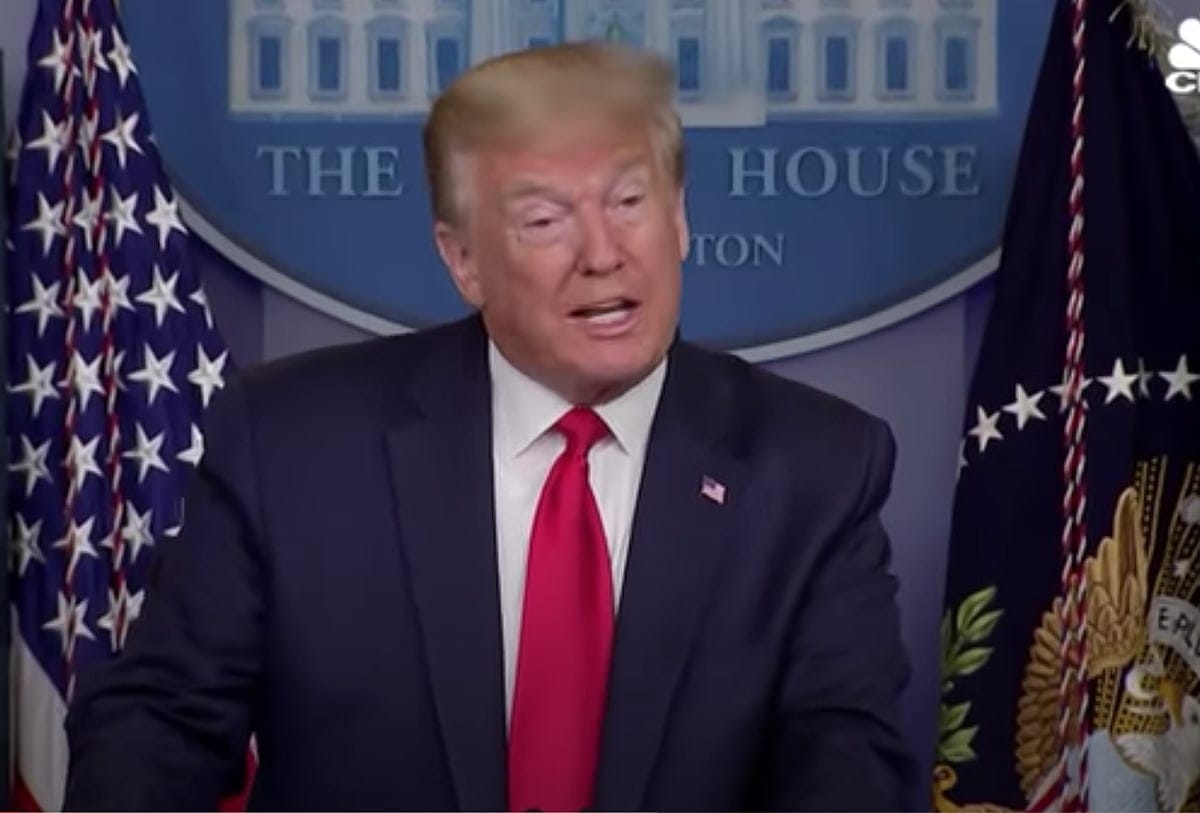Trump Risks ‘Exit Stage Left’ Headline

"Exit, Stage Left" was the memorably apt cover line on the January 2009 issue of Reason magazine, over a picture of George W. Bush, whose party had just been defeated by Barack Obama and the Democrats after Bush turned an economic downturn into a crisis by seizing Fannie Mae and Freddie Mac and AIG. The Republican Party's 2008 nominee, Senator John McCain, had mounted a losing run for the presidency denouncing "self-interest," and promising to "put an end to the greed that has driven our markets into chaos," prompting a New York Sun editorial observing, "If not even our leading Republican politicians are going to speak up for markets at this juncture, allow us the opportunity."
More than a decade later, Republicans are in danger of repeating the same mistake. It's natural for politicians to make some moves toward the center in a general election campaign to try to capture swing voters. But President Donald Trump, like George W. Bush and John McCain in 2008, risks moving so far left himself that he undercuts one of his strongest arguments against the Biden Democrats, which is that they are a bunch of big-government socialists.

